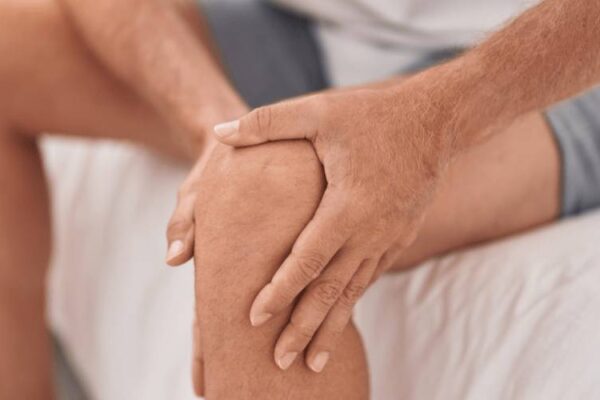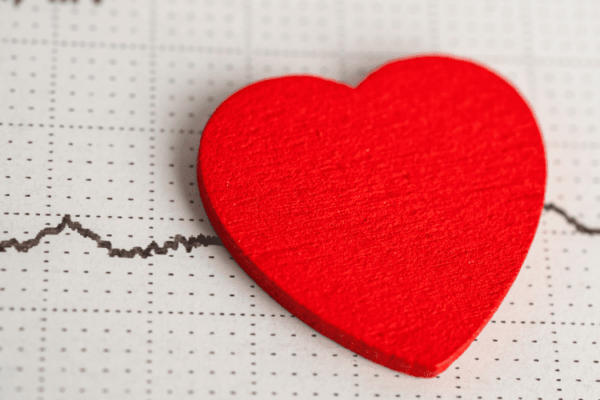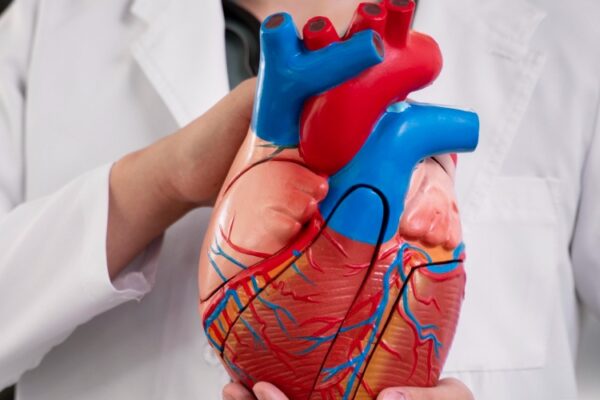
05 May Recognising the Symptoms of 5 Common Urologic Diseases
Recognising the Symptoms of 5 Common Urologic Diseases
By Island Hospital | May 5, 2025 8:00:00 AM
Urologic diseases are conditions that affect the ureter, urethra, bladder, and kidneys. While urologic conditions can affect both men and women, some conditions are gender-specific (e.g. prostate cancer).
At the same time, some conditions are more common in one gender due to anatomical differences. Moreover, the signs and symptoms of some diseases may vary or overlap.
Recognising the signs and symptoms of urologic diseases enables you to identify them promptly for accurate diagnosis and treatment.
In this blog, we will list several urologic diseases and the common symptoms you should look out for.
1. Kidney Stones
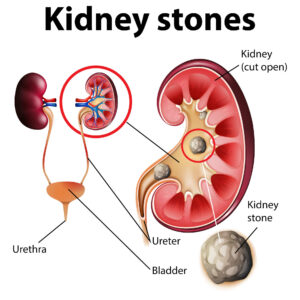
Source: Freepik
Kidney stones are comprised of uric acid or calcium and form when your body’s waste is not expelled properly in your urine.
When you do not drink sufficient water, your urine cannot dilute minerals. These minerals will become concentrated and form lumps of hardened salt and minerals, which can travel to other parts of the urinary tract.
Kidney stones can come in different sizes – from as small as a grain of rice to as big as the entire kidney.
While smaller kidney stones will exit the body without requiring any treatment, some small-sized stones and larger ones can cause unbearable pain and may require surgical intervention to be removed.
The common symptoms of kidney stones include:
- Pain in the back, belly, or side
- Pain or burning sensation during urination
- Urgent and frequent trips to the toilet
- Blood in the urine
- Cloudy/smelly urine
- Urinating in small amounts
- Nausea and vomiting
- Fever and chills
2. Prostate Cancer
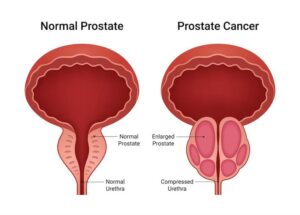
Prostate cancer is ranked among the most common cancers in Malaysian men and occurs in the part of the male body where sperm is nourished and transported.
In most cases, the growth of cancer is very slow and is confined within the prostate, showing very little signs and symptoms.
These cases of prostate cancer require “watchful waiting”, where no treatment is provided, and the doctor performs periodic tests to monitor the growth of the cancer.
However, rare cases of prostate cancer can become more widespread and life-threatening. As a person’s prostate cancer progresses in stage, the following symptoms may occur:
- Having trouble urinating
- Pain while urinating
- Blood in urine
- Erectile dysfunction
- Blood in sperm
- Constipation
- Dripping urine
- Prolonged lower back pain
Therefore, early detection of prostate cancer is the key to determining the odds of successful treatment. Risk factors that increase one’s risk for this disease are:
- Age
- Family history
- Obesity
3. Urinary Tract Infection (UTI)
Urinary tract infection (UTI) is a urologic disease that primarily affects the lower urinary tract, which consists of the bladder and urethra (a tube that transports urine from the bladder).
This disease is more likely to occur in women than men because women have a shorter urethra, which allows bacteria easy access to the bladder from the vagina or anus.
Activities such as sexual intercourse may also encourage bacteria to attack the urethra, and sexually active individuals may experience recurring infections after sexual intercourse.
The best way to avoid getting a UTI is to thoroughly clean your genitals from front to back after using the washroom and drink plenty of water to flush out the bacteria from your body.
The main symptoms of UTI are:
- A persistent urge to urinate
- Feeling a burning sensation while urinating
- Small but frequent periods of urination
- Cloudy or very smelly urine
- Blood-tinged urine
- Pelvic pain
If the infection is left untreated, the bacteria will make its way to the kidneys and cause serious damage to the kidneys.
A person with an infection in the bladder or kidneys may show further symptoms such as high fever, nausea, vomiting, and lower abdominal pain.
You can read our detailed blog post to learn more about urinary tract infections and how it affects women.
4. Interstitial Cystitis
This is a condition involving pain or pressure at the bladder accompanied by frequent urges to go to the toilet.
Normally, the bladder will expand until it reaches full capacity before sending signals to the brain, causing the urge to urinate.
However, when a person develops interstitial cystitis, the signals in the body become confused. You may feel a frequent urge to urinate but only urinate in small volumes.
This condition affects women more often than men, and symptoms of interstitial cystitis in men are often associated with prostatitis instead.
The symptoms of interstitial cystitis include:
- Pain between the vagina and anus (for women) or pain between the scrotum and anus (for men)
- Chronic pelvic pain
- Frequent urges to urinate
- Frequent urination (in small volumes) throughout the day and night
- Pain or discomfort when the bladder contains and releases urine
- Pain during sexual intercourse
5. Testicular Cancer
Testicular cancer is not as common as prostate cancer, but it is also known to be a cancer that affects young men more than the elderly.
It is the most common cancer that occurs in men aged 15 to 40 and may even develop in children.
However, testicular cancer is highly treatable and can be detected in its early stages by regularly performing a testicular self-examination (TSE) or through a physical examination with your doctor.
When examining your testicles, look for the following signs and symptoms:
- A lump or enlargement in either testicle
- Changes in the scrotum, such as a feeling of heaviness or pain
- Fluid gathering inside the scrotum, causing it to swell uncomfortably
- Dull ache in the scrotum, groin or abdomen
- Enlargement or tenderness of the male breast tissue
- Swelling in one or both legs
Testicular cancer typically affects one testicle, but it is possible for cancer to develop in both testicles.
You can read our detailed blog post to learn more about the prevention, symptoms, and treatment of testicular cancer.
Can Urologic Diseases be Prevented?
There are ways in which you can help prevent an early onset of urological diseases. Here are six practical steps you can take to achieve this:
1. Drink lots of water
Staying constantly hydrated is one of the best ways to prevent kidney stones from forming. By simply drinking an additional 1.5 litres of water daily, you can reduce your risk of UTIs by 50%.
2. Drink cranberry juice
Unsweetened cranberry juice helps prevent UTIs by inhibiting bacteria from attaching to the bladder walls. Alternatives to juice and cranberry supplements can also be found in capsules or tablets. Most importantly, you need to keep an eye out for the proanthocyanidins (PAC) level. The amount of cranberry in the juice or tablets is irrelevant; there must be at least 36mg of PAC for it to be effective.
3. Cut down salt intake
Consuming too much sodium will disrupt the balance of minerals in the body, increasing a person’s risk of kidney stones. While it is impossible to eliminate salt from your diet, you can still limit your intake of high-sodium foods. In the long run, this reduces your risk of kidney stones or kidney disease.
4. Limit caffeine intake
Caffeine found in coffee, tea, and energy drinks, often acts as a diuretic, leading your body to expel more water. This can increase your urge to urinate and may also contribute to dehydration. Consider reducing your caffeine intake or occasionally choosing decaffeinated beverages.
5. Quit smoking
Smoking is a major risk factor for kidney stones and interstitial cystitis. People who quit smoking will significantly reduce their risk of cancer and urologic diseases.
6. Exercise regularly
A lack of exercise and excess weight has been associated with an increased risk of kidney stones and prostate cancer. Start with simple exercises such as swimming, cycling, and yoga as they help to strengthen the primary stomach muscles, which in turn will relieve pressure on the bladder.
Read our detailed blog on urologic diseases or get into details with our experts.
Take Control of your Urologic Health Today
Urologic diseases can be treated effectively thanks to advanced technology that promises faster recovery time and lesser scarring.
Worried about painful, frequent urination and a weak urine stream being overwhelming in your daily life?
Schedule an appointment at your convenience with Island Hospital’s Urology Department. Our team of experienced urologists will recommend the best treatments and general care tips to ensure your well-being is taken care of.
Let’s start taking control of your urologic health and be on the lookout for any concerning symptoms for a better quality of life!
For inquiries or concerns about our services, please contact us.
Men’s Health Screening Package — Act Now to Safeguard Health

At Island Hospital, we offer a comprehensive men’s health screening package at RM 2,499 only to detect early signs of urologic diseases before they worsen and affect your internal organs.
What does the package include?
✔ Physical examination
✔ Complete medical report
✔ Consultation with health experts
✔ Light refreshments
✔ Special Island Hospital woven bag.
To learn more about the package, visit our page Comprehensive Plus package (Male).











